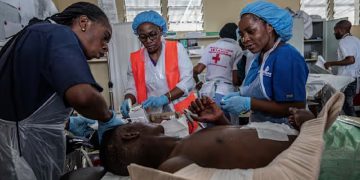Kenyans are at risk of losing jobs and experiencing a higher cost of living if the government continues to implement stringent economic policies.
The World Bank has issued a warning to President William Ruto’s administration, indicating that tight macroeconomic measures could hinder job creation and efforts to reduce poverty.
Economic Projections for Kenya
In its 30th Edition of the Kenya Economic Update, the World Bank revised Kenya’s economic growth forecast down to 4.7% for 2024, a decrease from the previous estimate of over 5% made in June.
This projection is also lower than the 5.6% growth reported in 2023 and aligns closely with the country’s pre-pandemic average of 4.6% per year from 2011 to 2019.
The report, released on December 10, 2024, highlights structural imbalances that are impeding Kenya’s economic growth.
While the agricultural and service sectors have shown resilience, they are beginning to slow down due to several factors:
• A decline in business confidence within the private sector
• Flooding that has disrupted livelihoods and limited consumption
• High interest rates that are stifling private sector growth
Expert Insights on Economic Challenges
In an exclusive interview with TUKO.co.ke, geoeconomic and markets expert Aly-Khan Satchu explained that the sluggish growth is a result of significant economic headwinds, including increased taxation and elevated interest rates.
Satchu stated:
“The agricultural sector has been an anchor in an otherwise tough economy. But the sharp rise in interest rates has acted as a brake, as has the slew of taxes.”
He noted that while the economy may continue to slow, recent reductions in interest rates and taxes could provide a much-needed boost.
Recommendations for Economic Revival
The World Bank urged the Kenyan government to tackle critical issues such as corruption and improve the overall business environment to stabilize the economy.
Qimiao Fan, World Bank Country Director for Kenya, emphasized:
“We remain strongly committed to supporting the people and Government of Kenya to improve the economic environment and create more and better jobs. This can be achieved by addressing corruption, enhancing governance, tackling high fiscal vulnerabilities, and improving the business climate.”
Government’s Stance on Economic Growth
In November 2024, Ruto’s administration projected strong economic growth for the coming year, citing improvements in local sugar production that have reduced reliance on imports.
However, many Kenyans expressed skepticism about these claims regarding sugar production data.
Navigating Economic Uncertainty
As Kenya grapples with tightening economic policies and a slowing growth rate, it faces significant challenges ahead.
Addressing structural issues and fostering a more conducive environment for business will be crucial for job creation and poverty alleviation.
The government’s ability to implement effective reforms will determine whether Kenya can navigate this economic landscape successfully or continue down a path of stagnation.
Credit: Tuko













